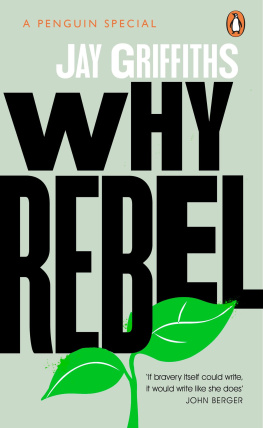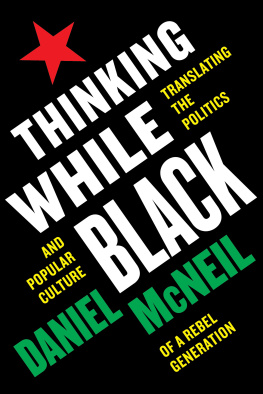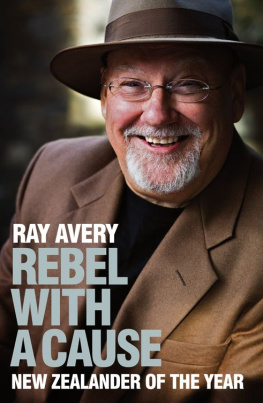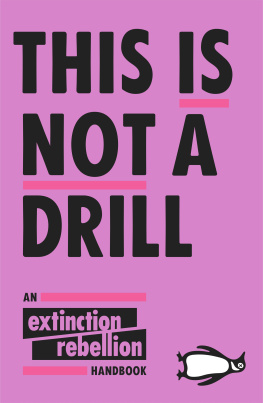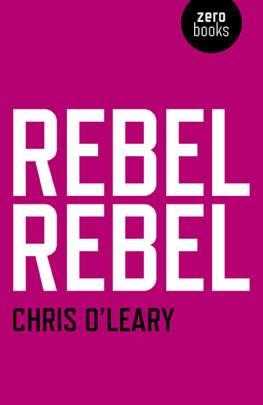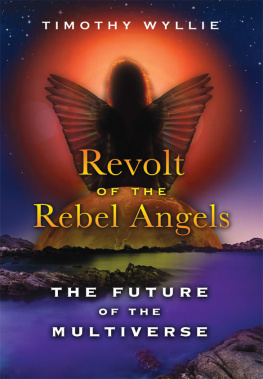About the Author
Jay Griffiths is the author of many books including Wild: An Elemental Journey; Kith: The Riddle of the Childscape; Tristimania and Pip Pip: A Sideways Look at Time. She won the Discover award for the best first-time author in the USA; the inaugural Orion award and the Hay International Fellowship. She has broadcast and written widely, including for Radiohead and the Royal Shakespeare Company. Her work has received widespread accolades including from Gary Snyder, Barry Lopez, Don Paterson, John Berger, Philip Pullman, KT Tunstall and Nikolai Fraiture.
Jay Griffiths
WHY REBEL

PENGUIN BOOKS
UK | USA | Canada | Ireland | Australia
New Zealand | India | South Africa
Penguin Books is part of the Penguin Random House group of companies whose addresses can be found at global.penguinrandomhouse.com.

First published by Penguin Books in 2021
Copyright Jay Griffiths, 2021
The moral right of the author has been asserted
ISBN: 978-0-241-99273-9
This ebook is copyright material and must not be copied, reproduced, transferred, distributed, leased, licensed or publicly performed or used in any way except as specifically permitted in writing by the publishers, as allowed under the terms and conditions under which it was purchased or as strictly permitted by applicable copyright law. Any unauthorized distribution or use of this text may be a direct infringement of the authors and publishers rights and those responsible may be liable in law accordingly.
Introducing
I wish that everyone who said they believed in angels would actually believe in insects. Thanks to the insects, we have food, but it is also insects who, tactfully and quietly, remove the dead. Without them, we would be wading through corpses at every step.
We need the living world, that truest of worlds, both in death and in life: thanks to other animals, human life is vitalized. Animals, their senses alert to every scent and whisper through their paws, antennae, wing-tips and noses, are our guides and our healers. Mindedness surrounds us: in air and water, on land and in the soil under our feet where the lovely, holy worm, in sweet complicity with the dreaming Earth, quickens death itself to life. In the transforming dark, trees are messaging each other through their roots and, where tree roots link with fungi, the network of underground awareness is able to respond differently to the presence of different creatures. Awareness surrounds us. Tingling.
Perhaps nowhere is so full of life as the forest of the Amazon: bursting, writhing, tickling and rotting. Death itself is merely matter requickened into something else because everything is a part of the shapeshifting metamorphosis at the green core of life. In the Amazon I felt, as never before, that I had touched the quick of the thing, had put my finger to the pulse at the heart of the world, in an experience of empathy with that wildest of creatures, the jaguar. Indigenous societies in the Amazon have never forgotten the mindedness of life, honouring it with a way of thinking that is empathetic, willing to cross borders, linking with other species, a way of walking immersed in the true world, sensitive to its ethic.
How we walk the Earth has never mattered more than now. How we treat it, in the spirit of gift or theft, a bill or a prayer, has never been more important, not only for the intrinsic value of the living world, but for humanitys health and well-being. In a startling demonstration, the Coronavirus that has so traumatized the world was unleashed by our destruction of forest habitat and the slaughter of wild creatures.
Where were you when the music stopped? Everything ceased. Schools closed. Churches were shut. The pubs were silent. Friends could not meet. We cancelled everything to fight the virus: weddings, work, exams, football and theatre. We stopped doing everything except the very thing that had caused the virus in the first place: annihilating the living world. Forests have been destroyed for cattle to feed the insatiable appetite for beef: wildlife is slaughtered for tamelife as soya is grown on previously forested land to feed the chicken industry. Bereft of their seclusion in the forests, wild creatures were forced into contact and the virus jumped to humans. Astonishingly, the cause was quietly noted, and yet nothing was done.
Although humans are just 0.01 per cent of all life, we have destroyed 83 per cent of wild mammals, and we have done so without awareness. Now, aghast, we begin to see and to name. The saddest word I know in any language is the word endling. It refers to the last individual of a species, final and forlorn, at whose death the species is extinct. An endling is the very epitome of tragedy, and the word was coined, appropriately, in this age of extinction, this strange age of our dawning knowing, seeing the unhallowed horror that is approaching.
The human conscience needs to be corroborate with the natural world and aligned to its ethic, furthering a politics of kindness. But a political stance that is the opposite of kindness is on the rise: libertarian fascism with its triumphal brutalism, its racism and misogyny, the politics that loathes the living world. Tonally fascistic in many countries, it is openly so in some countries and, in the case of Brazil, where it launches its assault on the Amazon and the peoples of the Earth who live within those forests, it is a chiaroscuro of cruelty.
Here, then, the causes for rebellion: survival and awe; beauty and necessity; grace and grief. There is an uprising of life in rebellion for life, those who are griefstruck and furious for the tawny ones, the creatures of feather and fur, demanding that media and governments tell the truth about the emergency we are in, fighting for life in this shared, wild home. I have felt the grief, once diving in a coral reef at its dying moment, as it glows a luminous ringing blue, ultramarine, ultra-dying at an ultra-twilight. And I have been imprisoned in the cells for my activism for climate and against extinction. I write about my arrest and trial, and the judges response. (In tears. Thank you. You have to succeed.)
Only when it is dark enough can you see the stars, and they are lining up now to write rebellion across the skies. Why rebel? Because nature is not a hobby. It is the life on which we depend.

The Solar Flares of Fascism
Fascism begins as something in the air. Stealthy as smoke in the darkness, easier to smell than to see. Fascism sets out an ethos, not a set of policies; it appeals to emotion, not fact. It begins as a pose, often a deceptive one. It likes propaganda, dislikes truth and invests heavily in performance. Untroubled by its own incoherence, it is anti-intellectual and yet it is contemptuous of the populace, even as it exploits the crowd mentality. Fascism is accented differently in different countries and uses the materials and the media of the times. It is hostile to egalitarianism and loathes liberalism. It champions might is right, a Darwinian survival of the nastiest, and detests vulnerability: the sight of weakness brings out the jackboot in the fascist mind, which then blames the victim for encouraging the kick. Fascism not only promotes violence but relishes it, viscerally so. It cherishes audacity and bravado, promotes charismatic leaders, demagogues and Strong Men, and seeks to flood or control the media. Even as it pretends to speak for the people, it creates the rule of the elite, a cult of violent chauvinism and a nationalism that serves racism.

